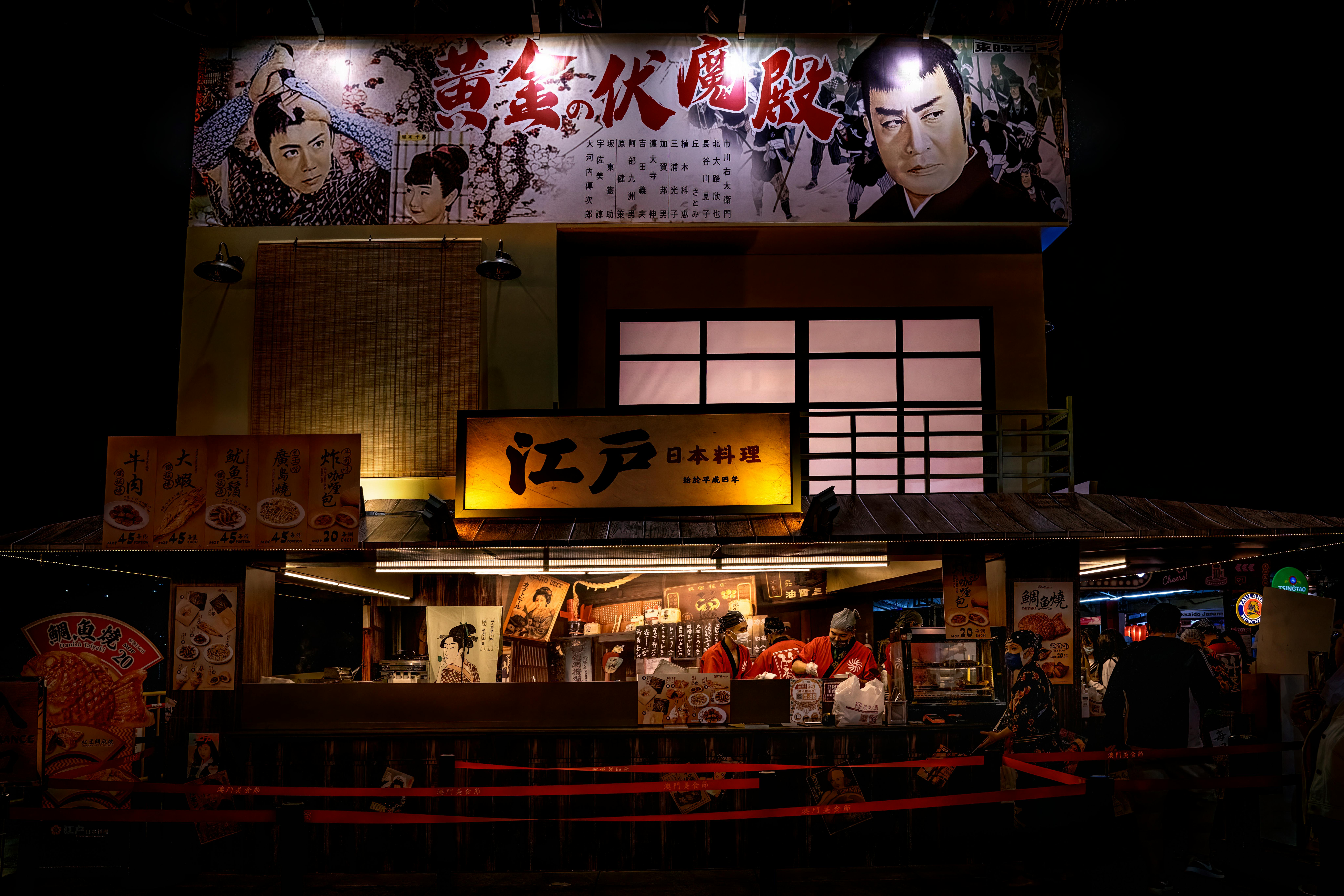False advertising is a serious offense and can have severe legal repercussions. If a restaurant promises a specific product or service, but fails to deliver, you may be able to sue the restaurant for false advertising. In this article, we will discuss what false advertising is, how it applies to restaurants, and what legal action you can take if you feel that you have been misled by a restaurant’s false advertising.False advertising by a restaurant is when a restaurant makes false or misleading statements about the food, services, or prices they offer. This could include exaggerating the quality of their food, claiming to have certain amenities that they do not have, or advertising prices that are significantly lower than what customers are actually charged. False advertising can be harmful to both customers and businesses.
What Legal Actions Can You Take Against A Restaurant For False Advertising?
False advertising is a serious problem that should not be taken lightly. If you believe that a restaurant has misled you with their advertising, there are a number of legal actions you can take. Depending on the severity of the false advertising, the legal action you choose may vary.
Most importantly, if you feel that a restaurant has misled you through false advertising, it is important to contact the local consumer protection agency or your state’s attorney general in order to report the activity. This will help ensure that the restaurant is held accountable for any deceptive practices they may have engaged in.
In addition to reporting the activity to a consumer protection agency, you may also want to consider filing a lawsuit against the restaurant. This will allow you to seek monetary damages from the restaurant for any harm caused by their false advertising. It is important to note that most states have statutes of limitations for filing such lawsuits, so it is important to act quickly if you believe that false advertising has occurred.
Finally, it may also be possible for consumers who have been harmed by false advertising to receive an injunction against a restaurant from engaging in such activities in the future. This could include restrictions on certain types of advertising or even an outright ban on certain practices, depending on what was deemed deceptive or misleading by a court of law.
In summary, if you feel that a restaurant has misled you with their advertising, there are several legal actions available to hold them accountable and ensure that they do not engage in such practices in the future. Reporting the issue to your local consumer protection agency and filing a lawsuit are two of the most common remedies available for those affected by false advertising.
Are There Any Restrictions On Suing A Restaurant For False Advertising?
When it comes to suing a restaurant for false advertising, there are several restrictions that apply. First, the advertisement must be false or misleading in order to have legal standing. If a restaurant advertises a product or service that it does not deliver, then this is considered false advertising and may be actionable in court. Additionally, if a restaurant advertises something that is not true, such as a health claim or an ingredient list that is not accurate, then this could also be grounds for legal action.
Furthermore, it is important to note that the claimant must show evidence of being damaged in some way by the false advertisement. For example, if someone purchased a meal from a restaurant based on an advertisement and found out afterwards that the meal was not as advertised, then they might have grounds for legal action against the restaurant. However, if someone just saw the advertisement but never purchased anything from the restaurant, then they may not have standing to sue for damages.
In addition to these restrictions, there are also certain laws and regulations that restrict when and how a person can sue for false advertising. Depending on where the restaurant is located, different laws may apply regarding what kind of proof must be provided in order to successfully argue false advertising in court. Furthermore, some states have statutes of limitations which restrict how long after an incident someone can file suit against another party for damages caused due to an act of fraud or negligence.
Overall, there are several restrictions on suing a restaurant for false advertising that must be taken into consideration before taking legal action against them. In most cases, claimants will need to provide evidence of being damaged by the false advertisement and prove their case according to applicable state laws and regulations in order to successfully sue for damages caused by deceptive practices.
What Kind Of Evidence Is Needed To Sue A Restaurant For False Advertising?
When suing a restaurant for false advertising, there are certain pieces of evidence that may be needed in order to prove one’s case. This may include physical proof of the false advertisement, such as copies of the advertisement itself. Depending on the type of claim being made, other forms of evidence may also be needed.
For example, if an individual is claiming physical harm or illness due to restaurant food, medical records documenting such illness or injury can be used as evidence. Additionally, witnesses who saw and can testify to the false advertising or anyone who experienced similar harm due to the same advertisement could also potentially be called upon as witnesses in court.
It is important to note that it is not enough just to prove that a restaurant was engaging in false advertising—one must also show how they were specifically harmed by it. For example, if an individual was enticed by false advertising into trying a new product at a restaurant and got sick afterwards, they would need to present evidence demonstrating how their illness was directly caused by the product they purchased at the restaurant.
Additionally, financial records showing how much money was spent on the product can also be used as evidence in this type of case. This can help demonstrate how much money was lost due to being misled by the false advertisement and can help support one’s case for damages or compensation from the restaurant.
Overall, when suing a restaurant for false advertising, it is important to have sufficient proof of both the falsehoods in question and how they led directly to one’s own harm or loss. Having physical documentation and witnesses present can be essential when making such a claim and should always be taken into account when pursuing litigation against a business for deceptive practices.
Proving Damage Caused by False Advertising of a Restaurant
Proving that damage has been caused by false advertising of a restaurant can be a difficult task. The first step is to identify the false advertising that has occurred. This can be done by reviewing the restaurant’s advertising materials, such as menus, flyers, and online ads. Once the false advertising has been identified, it must be proven that the false advertising was actually used to lure customers into the restaurant and that they suffered harm as a result.
In order to prove this, evidence must be gathered to show that the false advertising was used to encourage customers to visit the restaurant. This could include customer testimonials or reviews indicating that they were lured in by the false advertisement. Additionally, financial records from the restaurant can provide evidence of an increase in business following the introduction of an advertisement with misleading information.
Once it has been established that customers were misled and patronized the restaurant as a result, it must then be proven that they suffered some sort of harm or damage due to their reliance upon this false information. Depending on the circumstances, this might include loss of money spent on food or merchandise at the restaurant or loss of time spent visiting what would otherwise have been an unsatisfactory destination.
It is also important to remember that proving damage caused by false advertising can be difficult without witnesses or other forms of evidence. Therefore, it is essential for those who are seeking compensation for damages caused by a restaurant’s deceptive practices to gather as much evidence as possible in order to strengthen their case and prove their claim in court.
Finally, it is important for those seeking compensation for damages caused by false advertising to work with an experienced lawyer who can guide them through this process and provide support when needed. An experienced lawyer will understand how best to present evidence before a judge and jury and will know how best to craft arguments in favor of their client’s case so that they may receive fair compensation for any losses incurred due to misleading advertisements from a restaurant.

Gathering Evidence to Sue a Restaurant for False Advertising
If you believe that a restaurant has engaged in false advertising, you may have grounds to file a lawsuit. The first step is to gather evidence to support your claim. This evidence can take various forms, such as photographs, video recordings, and witness statements.
Photographs can be taken of the advertisement or promotional materials that you believe are false or misleading. These photos should clearly show the name of the restaurant and the content of the advertisement. In addition, it is important to preserve any receipts or written materials related to the promotion or advertisement.
Video recordings can be used as well. This can include surveillance footage or recordings made by yourself or a witness at the time of the incident. If possible, try to capture audio as well as video when recording so that any spoken false claims can also be documented.
Witness statements should also be collected if available. Witnesses who observed the incident may have information that could prove beneficial in court. Make sure to get written statements from each witness that details what they observed and heard during the incident in question.
Collecting evidence is essential for filing a successful lawsuit against a restaurant for false advertising. Photographs, video recordings, and witness statements are all important forms of evidence that can help prove your case in court. It is important to thoroughly document any promotional materials and other relevant information related to your claim so that you have sufficient evidence for your lawsuit.
Bringing A Lawsuit Against A Restaurant For False Advertising
Bringing a lawsuit against a restaurant for false advertising is a complex process and does not guarantee success. False advertising occurs when a business makes misleading or deceptive claims about its products or services, and it can cause harm to consumers. In order to bring a successful lawsuit against a restaurant for false advertising, the plaintiff must have evidence that the restaurant made false statements or engaged in deceptive practices. This evidence could include physical copies of advertisements, emails or other correspondence from the restaurant, or testimonies from customers who have experienced the false advertising.
The plaintiff must also prove that they have been harmed by the false advertising, which can be difficult if they cannot show any direct financial losses due to their experience. Additionally, if the false claims were made in good faith, there may not be any damages awarded even if the plaintiff is successful in proving their case.
In addition to proving that they have been harmed by the false advertising, the plaintiff must also demonstrate that they have taken action to mitigate the harm caused by the advertisement. This includes taking steps to inform potential customers of any misinformation contained in the advertisement and providing proof of their efforts.
Finally, there are certain defenses that restaurants can use when defending themselves against false advertising lawsuits. These include arguing that their advertisement was merely an opinion and not an actual statement of fact or showing proof that any misleading statements were unintentional and not intended to deceive customers.
While bringing a lawsuit against a restaurant for false advertising may be an option for some consumers, it is important to remember that success is not guaranteed. The plaintiff must prove all elements of their claim and be able to demonstrate that they suffered damages as a result of being exposed to the advertisement. Furthermore, restaurants may be able to use certain defenses when defending themselves against such claims, making it even more difficult for plaintiffs to achieve success in court.
Possible Outcomes of Suing a Restaurant for False Advertising
Suing a restaurant for false advertising can result in a variety of outcomes, depending on the case. The most common outcome is that the restaurant will be ordered to pay damages to the plaintiff. Damages can include compensatory damages, which are meant to reimburse the plaintiff for any losses they suffered as a result of the false advertising, or punitive damages, which are meant to punish and deter the restaurant from engaging in similar behavior in the future.
The court may also order an injunction against the restaurant. An injunction is a legal order that prevents them from engaging in certain activities, such as running false advertisements or making false claims about their products or services. Injunctions may also require that the restaurant take certain steps to correct any misleading information they have previously disseminated.
In some cases, a court may choose to award attorney’s fees and costs to the plaintiff if it finds that their case was particularly meritorious and that their efforts resulted in meaningful change for consumers. Additionally, many jurisdictions also allow plaintiffs who successfully sue restaurants for false advertising to recover their court costs and legal fees from the defendant.
Finally, courts may impose civil fines on restaurants found liable for false advertising in certain cases. Depending on state laws and other factors, these fines can range from relatively small amounts to large sums of money intended to make an example out of those who engage in deceptive practices.
Ultimately, suing a restaurant for false advertising is no guarantee of success or compensation; however, it is an important tool available to those who have been wronged by deceptive practices. By taking action against deceptive practices, plaintiffs can help protect themselves and other consumers from similar harm in the future.

Conclusion
False advertising is a serious offence that can result in significant legal ramifications for businesses. Consumers should always be aware of their rights when it comes to false advertising, and should take action if they feel that they have been misled or taken advantage of. It is possible to sue a restaurant for false advertising, although it is important to be aware of the relevant laws and regulations before doing so. Consumers should also consider the potential costs of pursuing legal action against a business, as well as the potential risks involved with such a decision. Ultimately, it is up to each individual consumer to decide whether or not taking legal action against a restaurant for false advertising is worth the effort.
It is also important to remember that consumers can protect themselves from false advertising by staying informed about their rights and being diligent when researching businesses before making any purchases or agreements. By arming themselves with this knowledge, consumers can help ensure that they are not taken advantage of by businesses engaging in deceptive practices.

Recent Comments